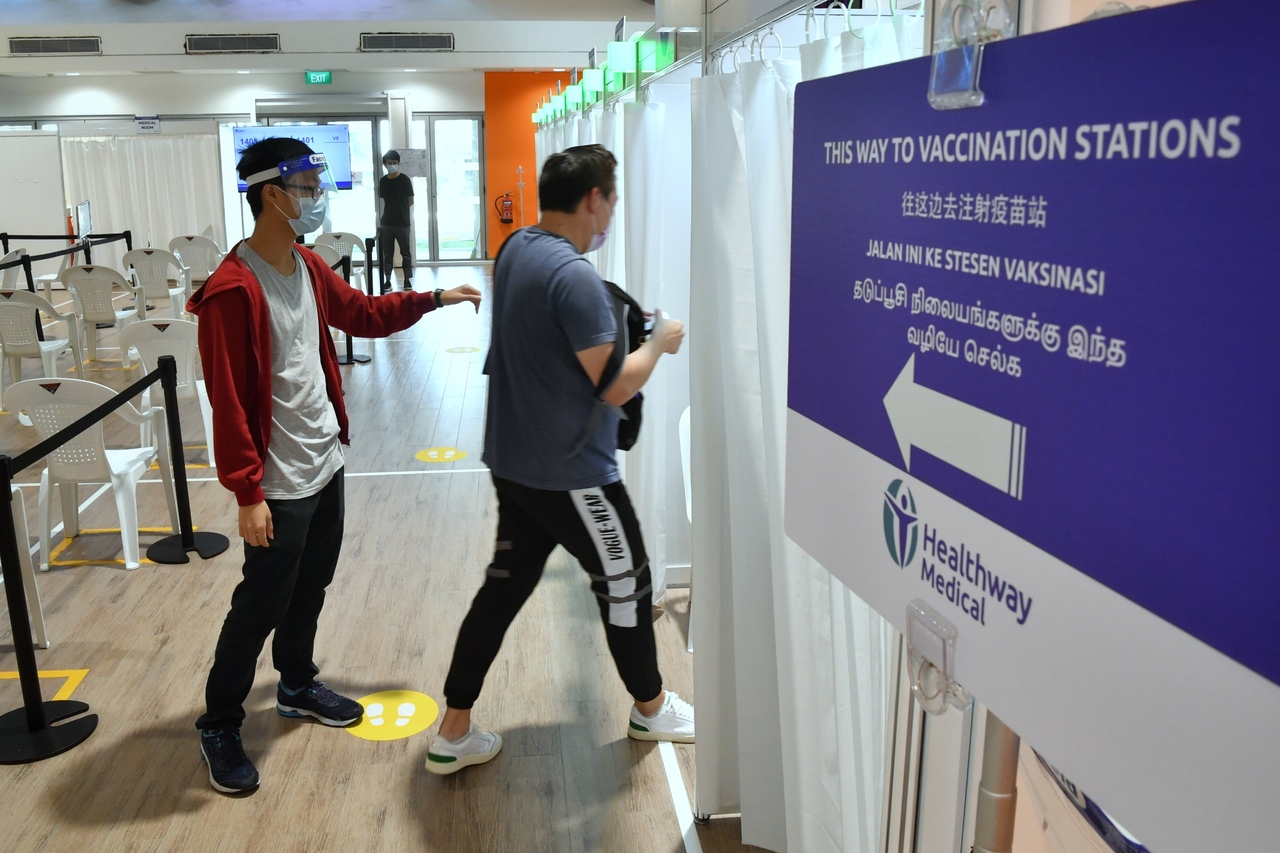askST: Why are more vaccinated people getting Covid-19?
Sign up now: Get ST's newsletters delivered to your inbox

Seeing more vaccinated individuals among infected cases is a mathematical certainty.
PHOTO: ST FILE
SINGAPORE - Fully vaccinated people currently make up 44 per cent of Covid-19 cases in Singapore, leading to questions over whether vaccinations are an effective safeguard against the virus.
Experts say, however, that as Singapore continues on its upward trajectory to vaccinate more people, seeing more vaccinated individuals among infected cases is a mathematical certainty, and not a reflection of the performance of the vaccines.
In its daily update on Thursday night (July 22), the Ministry of Health (MOH) revealed that 484 out of the total 1,096 locally transmitted infections over the last 28 days were fully vaccinated - making up 44 per cent of total infections.
Meanwhile, 333 cases were partially vaccinated and 279 were unvaccinated.
Q: Does this mean the vaccine is ineffective?
A: Professor Teo Yik Ying, dean of the Saw Swee Hock School of Public Health at the National University of Singapore (NUS), said that as more people get vaccinated, there will be more vaccinated people among the infected cases.
"Presently, we have almost 75 per cent of the population vaccinated with at least one dose, so the coronavirus is more likely to encounter someone who is vaccinated than someone who isn't," he said.
As at Friday noon, the cluster from the KTV lounges has 227 Covid-19 cases and the Jurong Fishery Port has 638 cases.
Experts noted that many of the people who visit the KTV lounges or work at the fishery port and the affected wet markets tend to be between 20 and 60 years old.
Said Prof Teo: "These groups are very well vaccinated, with even up to 80 per cent vaccinated. So this is where looking at such summarised data can be misleading."
While studies have shown that vaccinated individuals are less likely to get infected than those who have not had their shots, it is difficult to put a number on this, experts say.
This is because the chance of a person contracting Covid-19 differs across the island, depending on where cases surface, as well as a person's activities.
More importantly, a vaccinated individual who does get infected is far less likely to suffer from serious side effects.
Q: Does the vaccine really help to prevent adverse effects of Covid-19?
A: Health Minister Ong Ye Kung spoke earlier this month about a Singapore study which found that the efficacy of the mRNA vaccines against the Delta variant is 69 per cent.
But for the Sinovac Covid-19 vaccine, there is insufficient data to show how effective it is against the Delta strain.
Professor Dale Fisher, a senior infectious diseases consultant at the National University Hospital, on Friday said in a webinar organised by NUS' Yong Loo Lin School of Medicine that those who are fully vaccinated are very unlikely to get sick.
He noted that most of the Covid-19 cases aged 60 and above were mostly vaccinated.
"These people are the ones with a higher risk and would be cause for our ICUs (intensive care units) to be on standby," he said.

Prof Fisher noted that of the 415 Covid-19 cases in hospital, only eight Covid-19 cases required oxygen support or were in critical condition in the ICU. None of them was fully vaccinated.
The efforts to ramp up vaccinations need to continue as fewer people have needed oxygen or intensive care due to the high vaccination rates in Singapore, he said.
He added: "We know it still doesn't eradicate the disease, it just makes it milder."

Over the last 28 days, seven Covid-19 patients were under intensive care, required oxygen supplementation or died, MOH said on Thursday.
Among them, six were unvaccinated, while one had received one dose of the vaccine. None was fully vaccinated.
An 84-year-old Singaporean woman who was reported to have died on June 26 was unvaccinated.


